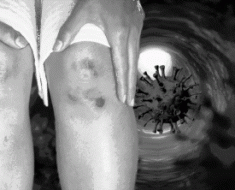Knowing how sleep affects the brain is the key to getting a great night’s rest, but we are often our own worst enemies when it comes to getting the sleep we need. However, by understanding the biology of sleep and what our brain needs to do to properly recuperate, we can begin to put in place those necessary changes and learn how to sleep for longer.
Dr Abhinav Singh is the Medical Director of the Indiana Sleep Center and a member of the Medical Review Panel of SleepFoundation.org. He told Live Science that without good quality sleep, the brain and the body both cease to be able to operate at their optimum level.
“Sleep is essential for the brain to maintain several of its functions,” he said. “During sleep, the brain does several housekeeping things for itself and the body during sleep; muscle repair, immune system modulation and memory are all being processed during sleep.”
How sleep affects the brain
Sleep is governed by a small, almond-sized part of the brain called the hypothalamus. As well as regulating your body temperature, managing emotional responses and controlling appetite, it’s also responsible for releasing hormones and setting your internal body clock. However, to work efficiently it needs the right light signals to be sent to it at the right times. If your sleep is disturbed or irregular, it simply won’t function as it should, leaving you in a spiral of tiredness during the day and sleeplessness at night.
Here’s how sleep affects the brain. During sleep, your brain waves become slower and the body cools. Secretions of melatonin, the hormone responsible for sleep, also rise. Meanwhile, wake-promoting neurotransmitters subside and sleep-promoting neurotransmitters take over, sending you into the stages of sleep in which the brain waves reduce in frequency but increase in amplitude, or non-REM sleep. This is followed by REM sleep, where the brain waves increase in activity, accompanied by the rapid eye movements that give it its name.
• Read more: What causes sleepwalking?
The brain will veer between REM and non-REM sleep throughout the night with between four and six cycles in adults, each lasting around 90 minutes. It is, as Dr Singh explained, not just the key to a good night of sleep but also better brain health in general.
“We now know that a ‘deep pressure wash’ takes place during deep sleep in the first half of the night whereby the toxic protein beta-amyloid is removed actively during sleep. Poor sleep may lead to an accumulation of this metabolic waste, which can affect memory, learning, and emotional regulation.”
What can happen to your brain if you don’t get enough sleep?
Failure to get good quality sleep doesn’t just result in fatigue or exhaustion, it can also play havoc with your brain, leading to an array of potential problems, some worse than others. When you are sleep deprived, the neurons in your brain won’t work as efficiently in encoding information and translating it into the right course of action, leading to problems with visual perception as well as mental lapses and memory loss.
Indeed, one study, published in Nature in 2017, found that lack of sleep had the same effect on the brain as drinking too much alcohol, slowing down response times and making you feel sluggish.
Another common issue associated with insomnia is the increase it provokes in the stress hormone cortisol. As it rises, cortisol suppresses melatonin, preventing adequate sleep and leading to mood swings, anxiety and, possibly, behavioral issues.
As Dr Abhinav Singh explained, the ramifications of a lack of sleep can also shape the way you manage your daily life. “Poor sleep can affect your cognitive abilities throughout the following day, resulting in poor attention to detail and errors at work and even relationship discord.”
However, that’s not all. Fatigue caused by a period of unsatisfactory sleep can even lead to what Dr Singh called “appetite dysregulation”, which makes you feel hungrier and possibly prone to weight gain. Lastly, a lack of sleep or poor sleep quality can also lead to a greater risk of infections and a weaker response to immunizations.
How to have healthier sleep habits
The key to a good night of sleep is mastering what’s called your ‘sleep hygiene’. Put simply, that’s all the things you need to put in place before bed in order to maximize your chances of sleeping soundly, ranging from putting your phone down well before bed to learning which is the best sleeping position. You’ll be amazed at how changing just a few habits can make a real difference to the quality of your sleep.
Try establishing a sleep schedule where you wake up at the same time every day, seven days a week. Block out any unwanted noise and go for cool, breathable fabrics on your bed and nightclothes too. Avoid drinking alcohol in the evening and make sure your room is as dark as it can be too so the photoreceptors in your eyes can send a message to your brain that it’s time to sleep.
It’s important that the bedroom is cool as well. According to research published in the medical journal Sleep, warm rooms can reduce the amount of time that your body spends in REM sleep. Using a sleep tracker will also give you a valuable insight into how good your night’s sleep is.
Finally, don’t be tempted to use your cell phone or a tablet while in bed, as the blue light they emit acts to stifle melatonin. “Give yourself a wind-down ritual that’s free of any unnecessary stimulation,” added Dr Singh. “And remember, the most important aspects of sleep hygiene are routine, rhythm and repetition.”
Gavin Newsham
A journalist, editor and author with over 25 years experience in the sports, health and fitness sectors, Gavin has written for a wide range of titles, including The Guardian, The Observer and The Sun in the UK, as well as international titles such as The New York Post. He also currently writes health features for the Telegraph newspaper in the UK, specializing in midlife issues.
Source: Read Full Article






